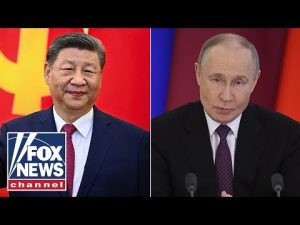In a recent back-and-forth discussion on climate change, a spirited debate unfolded between proponents of renewable energy and those who advocate for traditional fossil fuels. The dialogue, which took place at the University of California, Santa Barbara, turned into a quest for answers on the contentious issue of whether humans are the primary culprits behind global warming and what alternative energy sources should be prioritized. Both sides emphasized their views, making for an engaging encounter filled with questions, challenges, and some humor along the way.
One of the key points of contention was the degree to which human activity contributes to rising global temperatures. While the majority of scientific studies suggest that human actions, such as industrialization and reliance on fossil fuels, play a significant role in climate change, the debate rages on about how much. It appears that some individuals still grapple with the nuances of this issue, debating everything from specific percentages to the overall impact of humanity’s industrial pursuits. On the other side, advocates for fossil fuels pointed out that, despite claims of increasing natural disasters linked to climate change, advancements in technology have significantly reduced deaths associated with extreme weather events.
The conversation then shifted to the practical implications of transitioning away from fossil fuels. One participant pondered the idea of a gradual change versus an abrupt cessation of fossil fuel use, highlighting the importance of recognizing both economic growth and environmental stewardship. Instead of issuing outright bans on hydrocarbons, they emphasized finding a balanced approach through market-based solutions. This was promptly met with a challenge: What specific actions should be taken? In response, it became evident that the transition would not be as simple as flipping a switch, and many uncertainties still loom regarding the viability of renewable energy options.
As the discussion evolved, an interesting dilemma arose about electric vehicle batteries. The issue of sourcing materials like cobalt, which are often linked to environmental damage and human rights concerns in their extraction process, was juxtaposed against the push for greener transportation. It raised a critical question: Where do discarded electric vehicle batteries go? This provided a moment of levity, as some pointed out that while advocates for renewable energy might promote electric vehicles, the environmental impact of their batteries requires a serious analysis that often gets glossed over.
Ultimately, this discourse highlighted a few major points: the complexities of climate change are not simply black and white; the interdependence of economic growth and environmental sustainability requires careful navigation; and that the lens through which one views these issues often shapes solutions. Amidst the bemusement and intensity of the exchange, a shared goal emerged — the well-being of future generations and the planet. Despite differing opinions, it seems both sides agree on the necessity of a sustainable future, even if they are taking very different routes to get there.
It was clear that as much as dialogue can diverge, the ultimate quest for understanding and balanced solutions continues. Regardless of the resolution, forums like these are critical in fostering robust discussions that explore the intricate layers of climate change, energy production, and environmental stewardship. As participants departed, they undoubtedly carried with them a greater appreciation for the challenges that lie ahead in navigating the path towards a sustainable and economically viable future. And hey, if nothing else, they got some great talking points for the next round of coffee!







